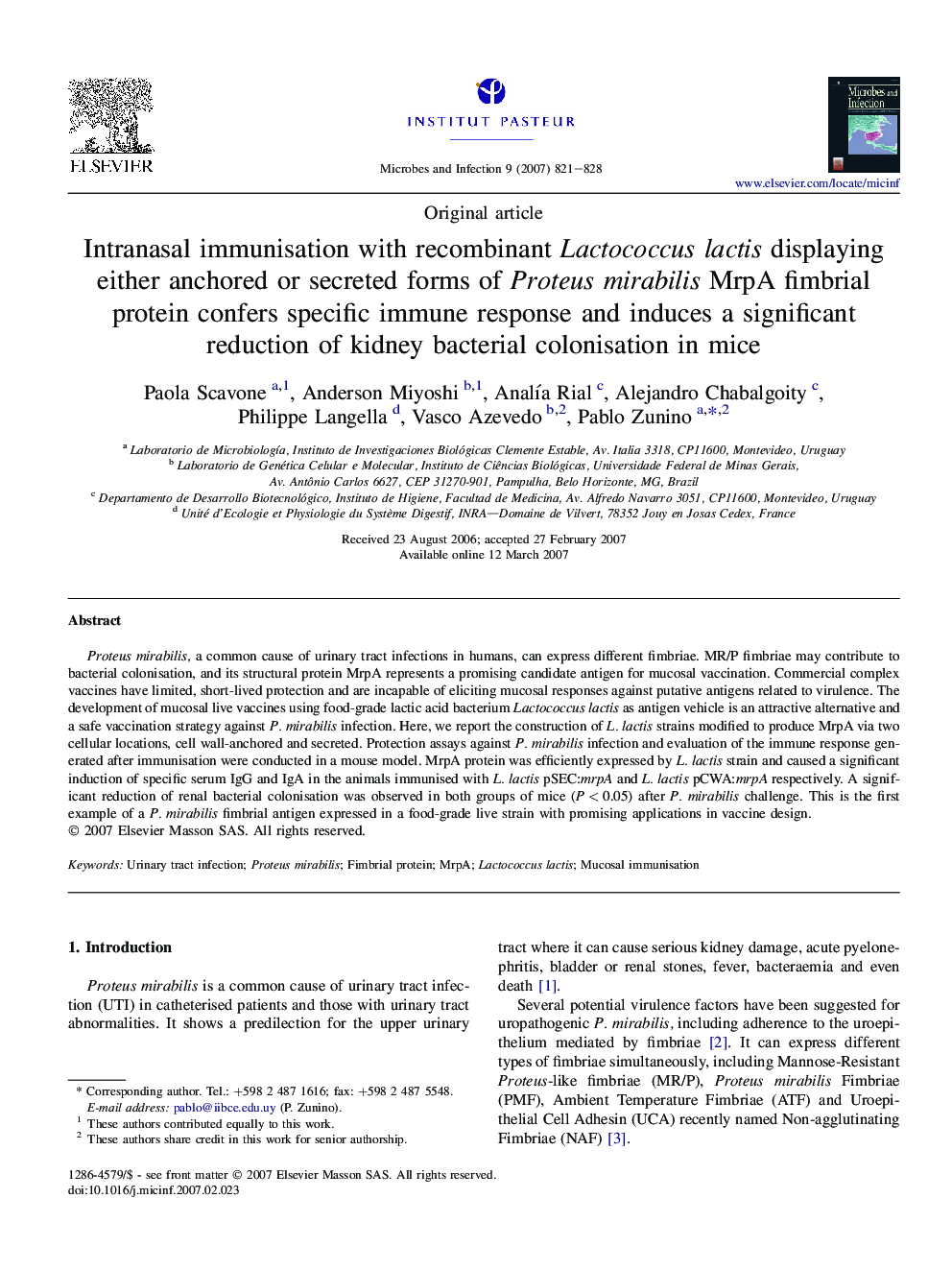| Article ID | Journal | Published Year | Pages | File Type |
|---|---|---|---|---|
| 3415384 | Microbes and Infection | 2007 | 8 Pages |
Proteus mirabilis, a common cause of urinary tract infections in humans, can express different fimbriae. MR/P fimbriae may contribute to bacterial colonisation, and its structural protein MrpA represents a promising candidate antigen for mucosal vaccination. Commercial complex vaccines have limited, short-lived protection and are incapable of eliciting mucosal responses against putative antigens related to virulence. The development of mucosal live vaccines using food-grade lactic acid bacterium Lactococcus lactis as antigen vehicle is an attractive alternative and a safe vaccination strategy against P. mirabilis infection. Here, we report the construction of L. lactis strains modified to produce MrpA via two cellular locations, cell wall-anchored and secreted. Protection assays against P. mirabilis infection and evaluation of the immune response generated after immunisation were conducted in a mouse model. MrpA protein was efficiently expressed by L. lactis strain and caused a significant induction of specific serum IgG and IgA in the animals immunised with L. lactis pSEC:mrpA and L. lactis pCWA:mrpA respectively. A significant reduction of renal bacterial colonisation was observed in both groups of mice (P < 0.05) after P. mirabilis challenge. This is the first example of a P. mirabilis fimbrial antigen expressed in a food-grade live strain with promising applications in vaccine design.
